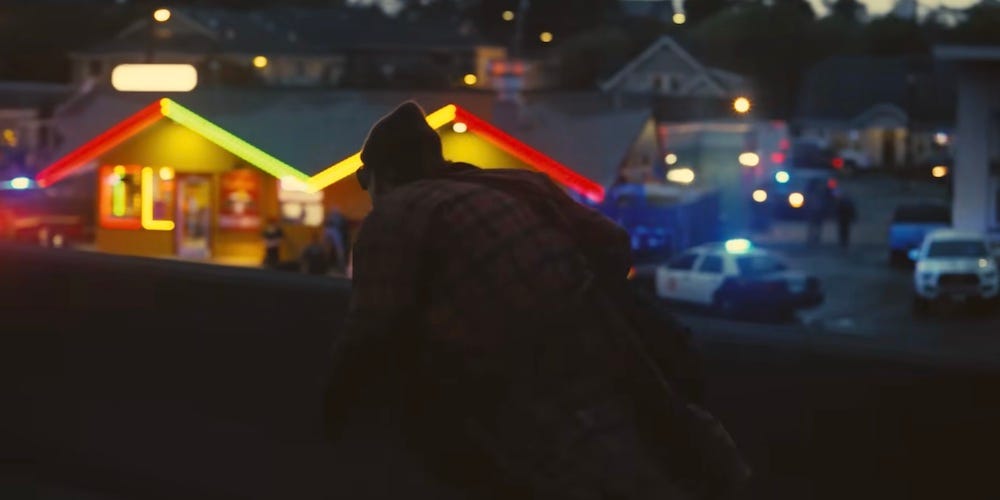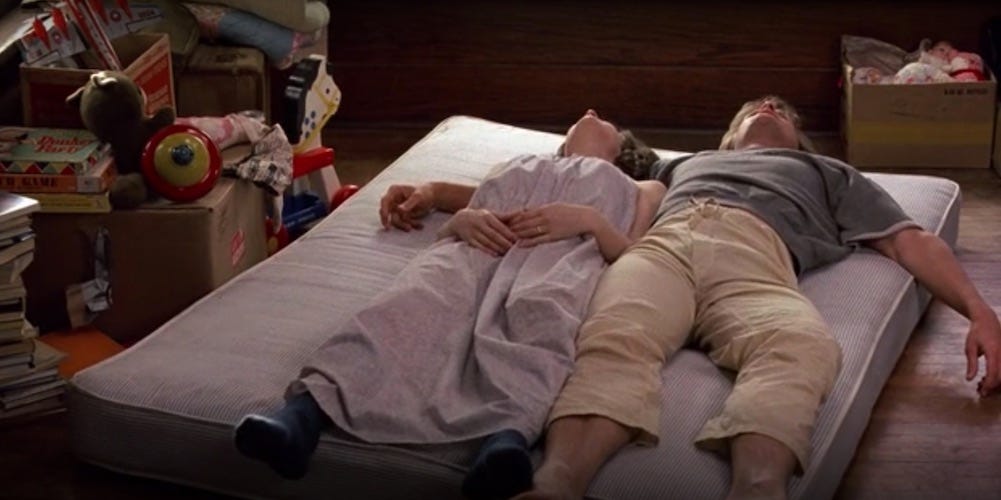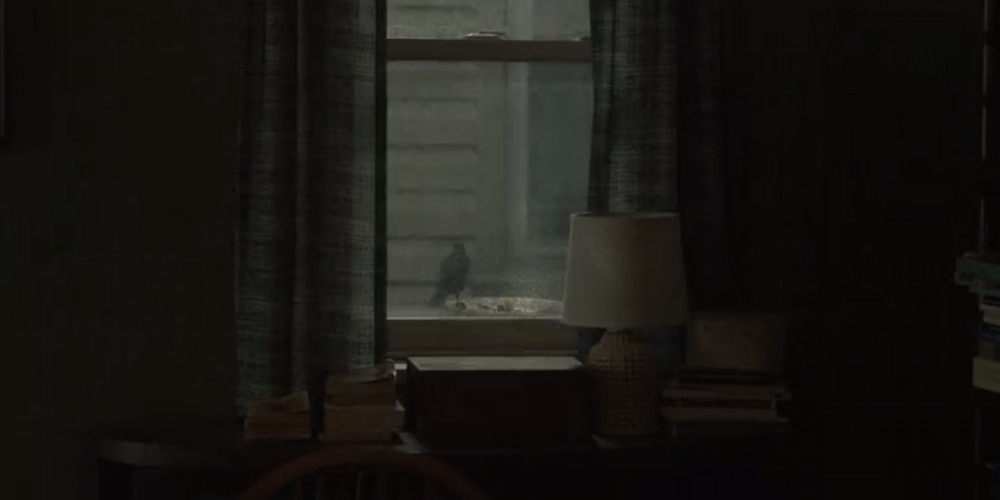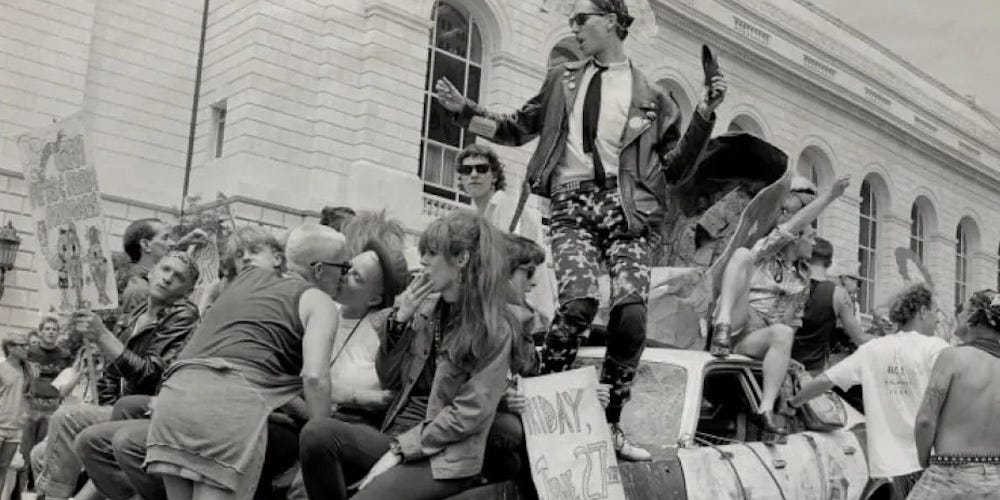biweekly newsletter listing all the music, movies, books, and, tv i, mike, have experienced for the first time over the past two weeks and also the things i have thought about them. again, i am mike.
2025 releases
agriculture, the spiritual sound i’ve learned a lot more about this band since their last album thanks to the solo material—ranging from avant-folk to hyperpop—released by both of their lead vocalists, which softens the blow of how willfully deconstructed they’re becoming as a black metal band. there’s a riff that’s very nearly replicated from a show me the body track on the opener which gives way to a vocal that sounds a lot like gilla band that opens the second track, but i think i’m mostly fixated on the speed-metal guitar and leah’s voice sounding particularly donald-duck-like on some of these songs. seems like there’s a lot of room for growth and i can’t imagine what that will look like.
pain magazine, violent god given that my only point of reference for this supergroup is birds in row, everything on this album that isn’t just synthy post-punk or gothic trip-hop sounds like an industrial-electronic remix of one of their albums if the execution of making hardcore music danceable ever ended well. that or a raid of a corporate marketing meeting by well-organizer anti-capitalists.
prewn, system slightly more plugged-in and less waits-ian version of her feral freak-folk debut, which put just as much focus of that “freak” on the lyrics (somehow seems right that the goes-electric angle is also completely overshadowed by cello being the focal point on most of this record). i simply have no idea what prewn is going for with any of her low-key demented indie-pop songs and i cannot think of a more appealing trait for an indie-pop artist to possess.
older albums
cause co-motion!, it’s time! singles & EPs 2005-08 (2008) a slightly more pastels-inspired by way of obama-i-wanna-go-surfing version of what every single chicago DIY band sounded like circa 2012 (hence dehd). it’s crazy how many different eras these songs make me nostalgic for all at once.
hole, live through this (1994) is it still a feminist statement to say that this album is every bit as good as nevermind if i loved both of these album’s very-famous openers but couldn’t really care less about anything that followed? i didn’t watch that high fidelity reboot from a few years ago but given that they presumably made it about someone who doesn’t hate women i wonder if she rightfully included “violet” in her “side one, track ones.”
nerver, believer’s hit (2019) these songs seem less distinguishable from each other than those on cash, though i will say that the experience of listening to this album repeatedly and still not being able to find any footholds feels much truer to the experience of seeing nerver live. probably music that’s better received as blunt force anyway.
yellow eyes, master’s murmur (2023) i remember my reaction to hearing that yellow eyes were doing a dungeon synth album being the same disappointment i felt when deafheaven announced that weird shoegaze-purist record everyone seems to have already forgotten about—but not only does this sound like a yellow eyes album (complete with passages of full-on ABM), it’s even a pretty good entry point for getting into dungeon synth much in the same way sunbather was for shoegaze folks getting into black metal. “jackie’s lamps” is also basically just a goblin track, which is cool.
movies
one battle after another dir. paul thomas anderson (2025) amped-up 2020s political menagerie of eddington—itself a striking balance of intelligent cultural caricature and dumb-guy action movie—fused with the highly personal generational drama of running on empty as it draws contrasts between political ideals and familial responsibility. feels good to be back on PTA’s wavelength for the first time in nearly two decades and it’s fascinating to learn that his dissection of the news yields far more interesting ideas than continuing to tap into the past, whether that’s expressed in his timely observation that leftist agitators tend to be less culpable for the assassination of high-ranking fascists than other, higher-ranking fascists who they’ve fallen out of step with, or, painting in broader strokes about the same themes of conspiracy and obviousness which make pynchon feel particularly relevant at the moment, his climax taking the form of several figures furiously racing over choppy streets despite having absolutely no clue who they’re chasing. certainly not the first director i’d expect to make a compelling case for sobriety in an era of military self-occupation. nor the one to gift sean penn his first role in over 40 years where we’re laugh with him rather than at him.
terms of endearment dir. james l. brooks (1983) beyond the fact that it’s very clearly an adaptation of a 400+ page novel, one of the primary reasons this movie feels so wonky is probably that its source material, written by one of the most famously texan dramatists of the 20th century, was entrusted to a brooklyn-born sitcom producer. i have no idea whether folks native to the south related to the strange mother/daughter dynamic here and i’m just a city boy who doesn’t understand their way of life or if james brooks, too, was just a city boy who didn’t understand their way of life when he wrote the parts, but the irrationality and tragicomedy of family life here feels pretty unique as the text seems to condemn yankee vulgarity and other modernities like divorce and abortion while praising southern bluntness, as both daughter and mother fall in with—and stick by—men who are pedophiles, philanderers, and cowards. probably the snottiest sex scene i’ve ever seen; also, i couldn’t believe the guy’s name was actually “flap,” but when jeff daniels showed up on screen i was like yeah, ok, that kinda makes sense.
the whale dir. darren aronofsky (2022) every darren aronofsky movie feels like he’s tapping into a different geyser of humanity that’s been previously untapped because it’s so dark that it could conceivably alienate a large portion of his audience—i can only image his movies have become so polarizing over the past 15 years because it’s getting harder for him to maintain control of that groundswell. i’ll admit that this was vastly deeper than the oscar-bait norbit i was led to believe it would be even if its depiction of obesity as a metaphorical manifestation of poor choices is only slightly less bad than implying it as a literal one. although i can feel the writer insisting that the play was named solely for its frequent references to moby dick and any other implications are up to the viewer, i still get the impression he respects his subject much more than viewers watching biggest loser respected theirs two decades ago. after all, the shallowest depiction of any demographic here is saved for zoomers, which is maybe based in a very rational paranoia about how they wield their phone cameras.
books
queercore: how to punk a revolution edited by liam warfield, walter crasshole, and yony leyser (2020) gotta admit that my prior knowledge of the term “queercore” was relegated to a specific category of music that’s quite literally a portmanteau of “queer” and “hardcore,” which hardly accounts for the far more nebulous definition applied to a broader culture that’s long adopted terms like “queer” and “punk” as they change meaning over time. basically, when the intro explains that the timeline covered in this oral history cuts off at the year 2000, all the subjects i was expecting it to discuss quickly became relegated to the first page of advance praise. i’m also embarrassed to admit that my main point of reference here was meet me in the bathroom, the only other music-centric oral history i’ve ever read that centers around what was essentially a highly commercialized music scene of straight people with the common denominator being a sense of financial privilege.
the scene of queer musicians, filmmakers, and zine makers documented in this book is often described as one of “freaks among freaks,” which, among other things, built a much-needed cultural spectrum alongside a sexual one (it’s often noted that the scene isn’t only anti-establishment queer, but also anti establishment-queer—the legalization of gay marriage seemed like a step backwards, in a sense, given that it homogenized (and, worse, domesticated) the queer lifestyle). it’s interesting how the enormity of this movement feels both totally unlikely and completely inevitable at the same time, while it additionally feels more broadly relatable as different figures lament the fact that capitalism was bound to swallow up everything they worked so hard to create. honestly spent most of the book struggling to imagine how scenes like this one could build organically today.




